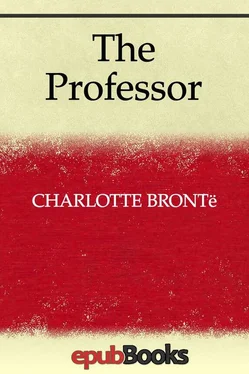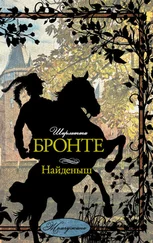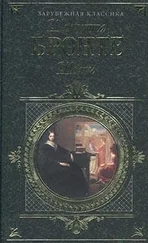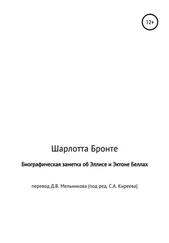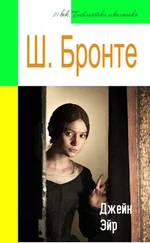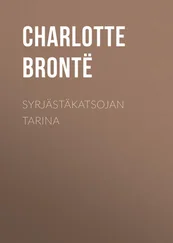Шарлотта Бронте - The Professor
Здесь есть возможность читать онлайн «Шарлотта Бронте - The Professor» — ознакомительный отрывок электронной книги совершенно бесплатно, а после прочтения отрывка купить полную версию. В некоторых случаях можно слушать аудио, скачать через торрент в формате fb2 и присутствует краткое содержание. Год выпуска: 2014, Издательство: epubBooks Classics, Жанр: Классическая проза, на английском языке. Описание произведения, (предисловие) а так же отзывы посетителей доступны на портале библиотеки ЛибКат.
- Название:The Professor
- Автор:
- Издательство:epubBooks Classics
- Жанр:
- Год:2014
- ISBN:нет данных
- Рейтинг книги:3 / 5. Голосов: 1
-
Избранное:Добавить в избранное
- Отзывы:
-
Ваша оценка:
- 60
- 1
- 2
- 3
- 4
- 5
The Professor: краткое содержание, описание и аннотация
Предлагаем к чтению аннотацию, описание, краткое содержание или предисловие (зависит от того, что написал сам автор книги «The Professor»). Если вы не нашли необходимую информацию о книге — напишите в комментариях, мы постараемся отыскать её.
The Professor — читать онлайн ознакомительный отрывок
Ниже представлен текст книги, разбитый по страницам. Система сохранения места последней прочитанной страницы, позволяет с удобством читать онлайн бесплатно книгу «The Professor», без необходимости каждый раз заново искать на чём Вы остановились. Поставьте закладку, и сможете в любой момент перейти на страницу, на которой закончили чтение.
Интервал:
Закладка:
In the second week of October, 18—, I got the appointment of English professor to all the classes of ― College, Brussels, with a salary of three thousand francs per annum; and the certainty of being able, by dint of the reputation and publicity accompanying the position, to make as much more by private means. The official notice, which communicated this information, mentioned also that it was the strong recommendation of M. Vandenhuten, negociant, which had turned the scale of choice in my favour.
No sooner had I read the announcement than I hurried to M. Vandenhuten's bureau, pushed the document under his nose, and when he had perused it, took both his hands, and thanked him with unrestrained vivacity. My vivid words and emphatic gesture moved his Dutch calm to unwonted sensation. He said he was happy—glad to have served me; but he had done nothing meriting such thanks. He had not laid out a centime—only scratched a few words on a sheet of paper.
Again I repeated to him—
"You have made me quite happy, and in a way that suits me; I do not feel an obligation irksome, conferred by your kind hand; I do not feel disposed to shun you because you have done me a favour; from this day you must consent to admit me to your intimate acquaintance, for I shall hereafter recur again and again to the pleasure of your society."
"Ainsi soit–il," was the reply, accompanied by a smile of benignant content. I went away with its sunshine in my heart.
Chapter XXIII
IT was two o'clock when I returned to my lodgings; my dinner, just brought in from a neighbouring hotel, smoked on the table; I sat down thinking to eat—had the plate been heaped with potsherds and broken glass, instead of boiled beef and haricots, I could not have made a more signal failure: appetite had forsaken me. Impatient of seeing food which I could not taste, I put it all aside into a cupboard, and then demanded, "What shall I do till evening?" for before six P.M. it would be vain to seek the Rue Notre Dame aux Neiges; its inhabitant (for me it had but one) was detained by her vocation elsewhere. I walked in the streets of Brussels, and I walked in my own room from two o'clock till six; never once in that space of time did I sit down. I was in my chamber when the last–named hour struck; I had just bathed my face and feverish hands, and was standing near the glass; my cheek was crimson, my eye was flame, still all my features looked quite settled and calm. Descending swiftly the stair and stepping out, I was glad to see Twilight drawing on in clouds; such shade was to me like a grateful screen, and the chill of latter Autumn, breathing in a fitful wind from the north–west, met me as a refreshing coolness. Still I saw it was cold to others, for the women I passed were wrapped in shawls, and the men had their coats buttoned close.
When are we quite happy? Was I so then? No; an urgent and growing dread worried my nerves, and had worried them since the first moment good tidings had reached me. How was Frances? It was ten weeks since I had seen her, six since I had heard from her, or of her. I had answered her letter by a brief note, friendly but calm, in which no mention of continued correspondence or further visits was made. At that hour my bark hung on the topmost curl of a wave of fate, and I knew not on what shoal the onward rush of the billow might hurl it; I would not then attach her destiny to mine by the slightest thread; if doomed to split on the rock, or run aground on the sand–bank, I was resolved no other vessel should share my disaster: but six weeks was a long time; and could it be that she was still well and doing well? Were not all sages agreed in declaring that happiness finds no climax on earth? Dared I think that but half a street now divided me from the full cup of contentment—the draught drawn from waters said to flow only in heaven?
I was at the door; I entered the quiet house; I mounted the stairs; the lobby was void and still, all the doors closed; I looked for the neat green mat; it lay duly in its place.
"Signal of hope!" I said, and advanced. "But I will be a little calmer; I am not going to rush in, and get up a scene directly." Forcibly staying my eager step, I paused on the mat.
"What an absolute hush! Is she in? Is anybody in?" I demanded to myself. A little tinkle, as of cinders falling from a grate, replied; a movement—a fire was gently stirred; and the slight rustle of life continuing, a step paced equably backwards and forwards, backwards and forwards, in the apartment. Fascinated, I stood, more fixedly fascinated when a voice rewarded the attention of my strained ear—so low, so self–addressed, I never fancied the speaker otherwise than alone; solitude might speak thus in a desert, or in the hall of a forsaken house.
"'And ne'er but once, my son,' he said,
'Was yon dark cavern trod;
In persecution's iron days,
When the land was left by God.
From Bewley's bog, with slaughter red,
A wanderer hither drew;
And oft he stopp'd and turn'd his head,
As by fits the night–winds blew.
For trampling round by Cheviot–edge
Were heard the troopers keen;
And frequent from the Whitelaw ridge
The death–shot flash'd between.'" etc. etc.
The old Scotch ballad was partly recited, then dropt; a pause ensued; then another strain followed, in French, of which the purport, translated, ran as follows:—
I gave, at first, attention close;
Then interest warm ensued;
From interest, as improvement rose,
Succeeded gratitude.
Obedience was no effort soon,
And labour was no pain;
If tired, a word, a glance alone
Would give me strength again.
From others of the studious band,
Ere long he singled me;
But only by more close demand,
And sterner urgency.
The task he from another took,
From me he did reject;
He would no slight omission brook,
And suffer no defect.
If my companions went astray,
He scarce their wanderings blam'd;
If I but falter'd in the way,
His anger fiercely flam'd.
Something stirred in an adjoining chamber; it would not do to be surprised eaves–dropping; I tapped hastily, and as hastily entered. Frances was just before me; she had been walking slowly in her room, and her step was checked by my advent: Twilight only was with her, and tranquil, ruddy Firelight; to these sisters, the Bright and the Dark, she had been speaking, ere I entered, in poetry. Sir Walter Scott's voice, to her a foreign, far–off sound, a mountain echo, had uttered itself in the first stanzas; the second, I thought, from the style and the substance, was the language of her own heart. Her face was grave, its expression concentrated; she bent on me an unsmiling eye—an eye just returning from abstraction, just awaking from dreams: well–arranged was her simple attire, smooth her dark hair, orderly her tranquil room; but what—with her thoughtful look, her serious self–reliance, her bent to meditation and haply inspiration—what had she to do with love? "Nothing," was the answer of her own sad, though gentle countenance; it seemed to say, "I must cultivate fortitude and cling to poetry; one is to be my support and the other my solace through life. Human affections do not bloom, nor do human passions glow for me." Other women have such thoughts. Frances, had she been as desolate as she deemed, would not have been worse off than thousands of her sex. Look at the rigid and formal race of old maids—the race whom all despise; they have fed themselves, from youth upwards, on maxims of resignation and endurance. Many of them get ossified with the dry diet; self–control is so continually their thought, so perpetually their object, that at last it absorbs the softer and more agreeable qualities of their nature; and they die mere models of austerity, fashioned out of a little parchment and much bone. Anatomists will tell you that there is a heart in the withered old maid's carcass—the same as in that of any cherished wife or proud mother in the land. Can this be so? I really don't know; but feel inclined to doubt it.
Читать дальшеИнтервал:
Закладка:
Похожие книги на «The Professor»
Представляем Вашему вниманию похожие книги на «The Professor» списком для выбора. Мы отобрали схожую по названию и смыслу литературу в надежде предоставить читателям больше вариантов отыскать новые, интересные, ещё непрочитанные произведения.
Обсуждение, отзывы о книге «The Professor» и просто собственные мнения читателей. Оставьте ваши комментарии, напишите, что Вы думаете о произведении, его смысле или главных героях. Укажите что конкретно понравилось, а что нет, и почему Вы так считаете.
